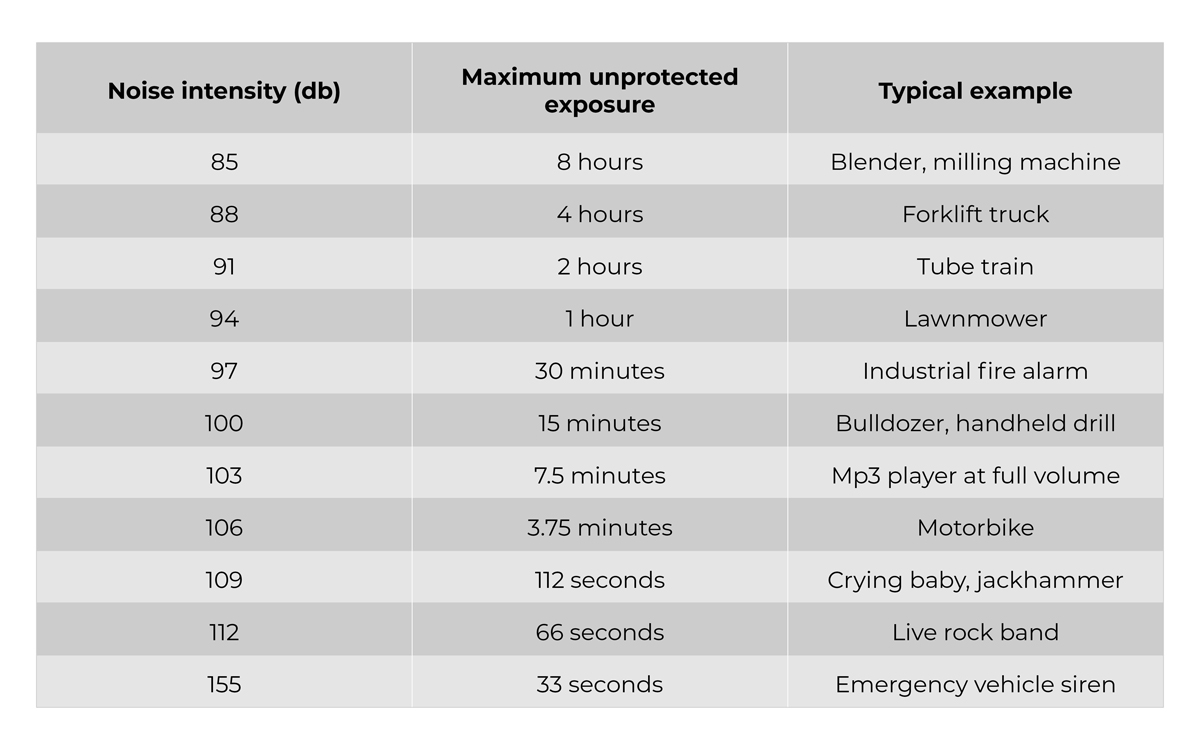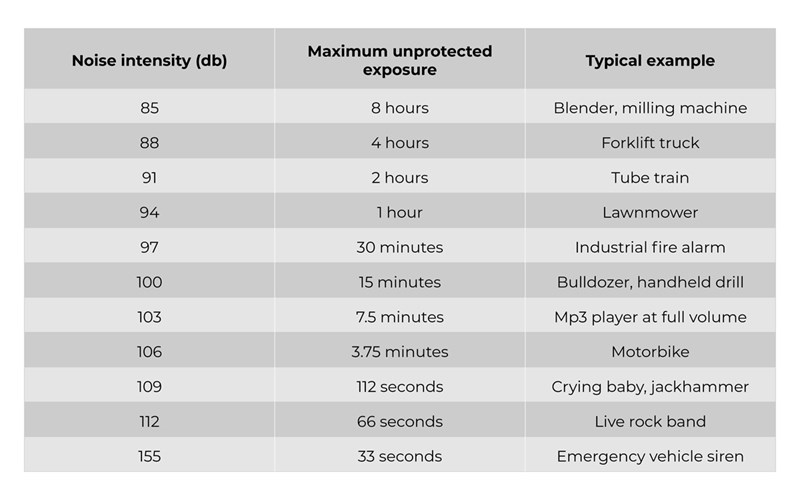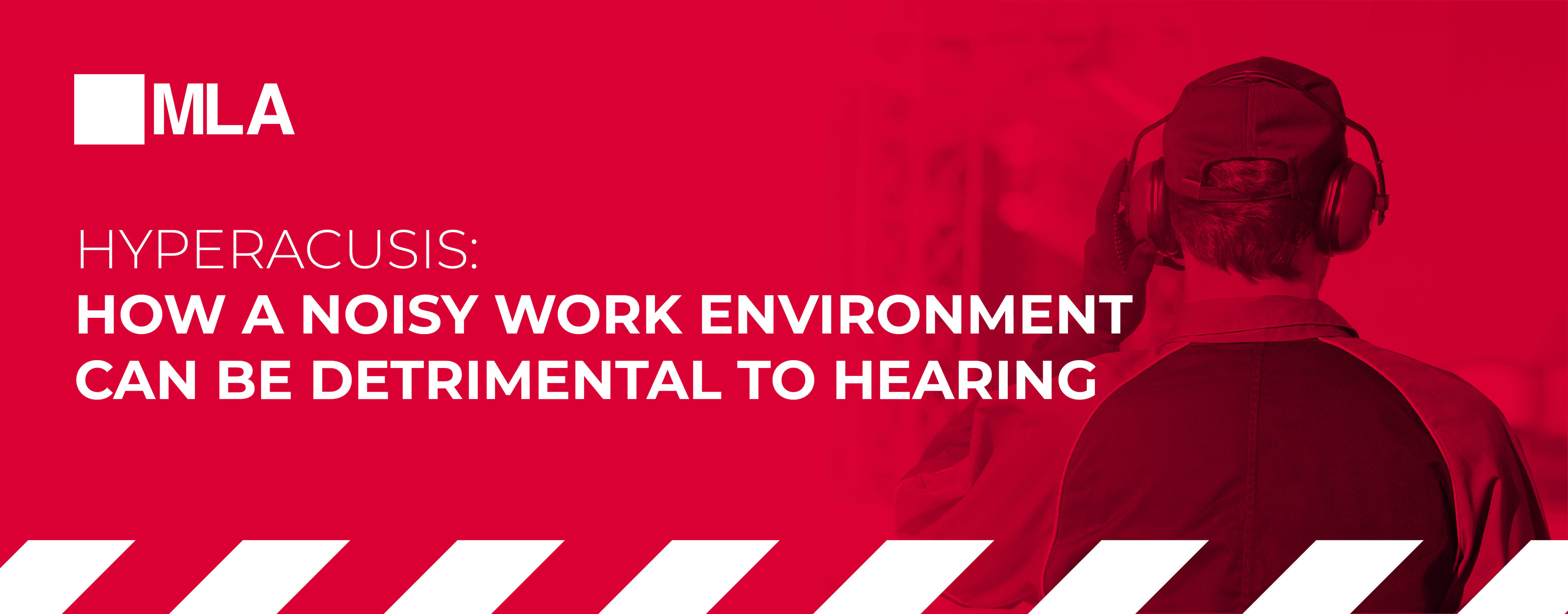Whether you work in manufacturing, construction or a nightclub, these environments can be detrimental to your hearing, often causing Noise Induced Hearing Loss, Tinnitus and Hyperacusis.
How loud is too loud?
Ears are some of the most delicate organs in your body; once the tiny ear cells have been damaged, they often don’t completely heal which can have a severe impact on a person’s quality of life.
Dangerous levels of noise exposure is dependent on the volume or intensity of the noise, as well as the time or duration of the exposure to that noise. Any noise above 85dB (decibels) is harmful to the ear, and the table below demonstrates the time period an individual can be exposed to a noise before it incurs damage:


What is Hyperacusis?
Hyperacusis is a condition which affects an individual’s hearing, resulting in everyday sounds appearing much louder than they should. To most people, sounds such as jingling coins, a car engine or a vacuum cleaner cause no distress, however, to an individual suffering from Hyperacusis, these sounds can be painful to hear, affecting their quality of life and sometimes resulting in phonophobia (a fear of loud sounds).
Those who work in the military, construction workers and factory workers are just some examples of the noisiest professions. Individuals who suffer from Hyperacusis are also often victims of Tinnitus (a ringing in the ears) and Hearing Loss as both can be caused by exposure to loud noises.
Treatment for Hyperacusis at MLA
As part of our service offering, MLA provides Sound Therapy (desensitisation) to help clients desensitise their hearing over a period of several months. Specialist noise generators are used to help gradually increase the level of noise that the client feels comfortable with, restoring a normalised perception of loudness.
This therapy also involves CBT-focused (Cognitive Behavioural Therapy) counselling to help the client manage the day-to-day difficulties that come with living with Hyperacusis.
To learn more about our NIHL Medical Report services, please click here.

